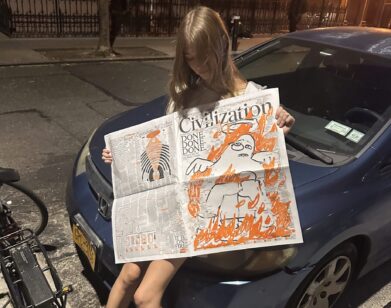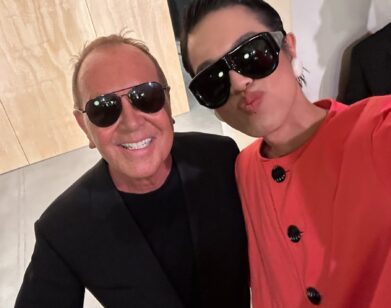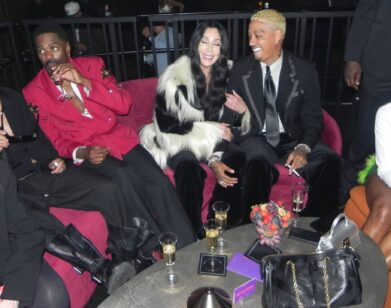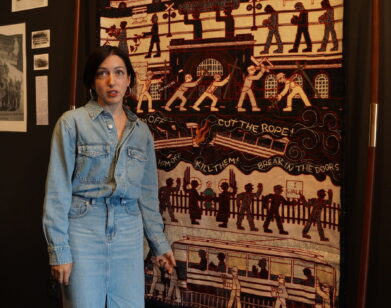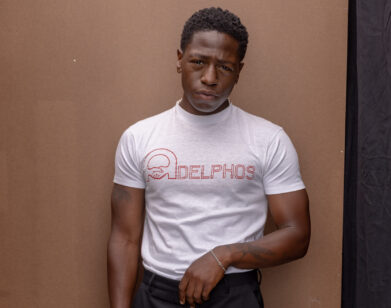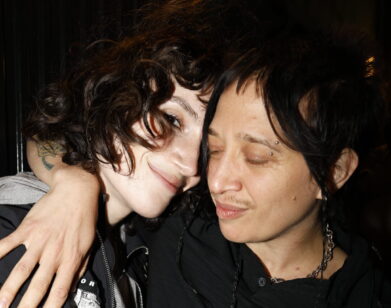Growing Up Brad
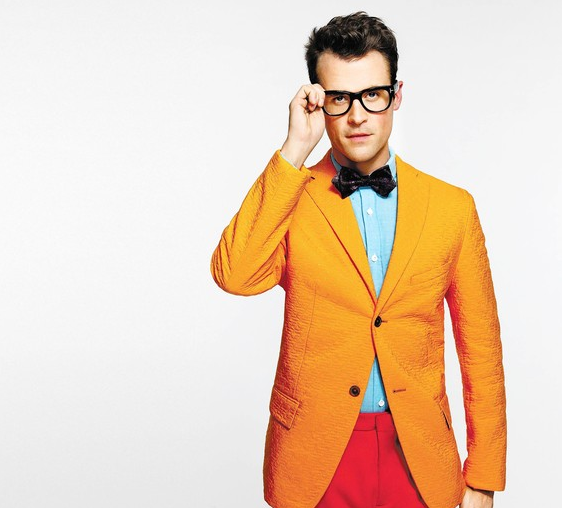
ABOVE: BRAD GORESKI. IMAGE COURTESY OF YU TSAI
Fashion can change a life. For Brad Goreski, it transformed him from an overweight and lonely Canadian kid to a trim, successful Hollywood style star. In Born To Be Brad: My Life And Style, So Far (It Books), Goreski chronicles his days from jeans hand-sewn with a decal of Madonna’s face, to rising in the ranks as a young intern at Vogue, to styling beautiful women like Cameron Diaz and Anne Hathaway. A sometimes hilariously sardonic and revealing read, Goreski’s story is one of an outsider who through hard work and passion, triumphed. Goreski also shares style tips and fashion advice, offering readers his impeccable eye and flair for playful visual detail. We sat down with Goreski for breakfast at the Mercer Hotel to chat about RuPaul, club kids, his hectic high-school days, clowns, and the sense of innocence and whimsy that still infuses his personal style.
ROYAL YOUNG: How did growing up feeling different, like a bit of an outsider, inform your sense of style?
BRAD GORESKI: I got to the point where I realized I’d never actually be in that group of people that was considered the normal group. Aside from being gay, there was also this overwhelming desire I couldn’t control to wear what I wanted to wear and express myself that way. I tried to assimilate and mix myself in with everybody, but I still stood out because of my mannerisms, the way I spoke, my interests, the way I walked, all those things that make us stand out in a crowd. Then I got to a point where I stopped caring, because people were calling me names no matter what, so I thought I might as well just do what I wanted to do.
YOUNG: Where did this “fuck it, I’m going to do myself at any cost” attitude come from?
GORESKI: That was probably in high school. When I started finding my group of people, the drama freaks—this is so dumb, like a John Hughes movie now that I think about it—but once we took over student council, I didn’t care anymore. My friends and I were always dyeing our hair, we were dressing to entertain each other, we would make each other laugh. We had assemblies in school, I don’t know why, because they were not informative at all. They were like performance art pieces for us. There was one time where we shut off the lights on stage, my friends made them strobe, and I just came out with plastic guns with lights in them, my hair in pigtails, terry-cloth shorts, knee-high sparkly socks, Converse, a really tight vintage t-shirt and, like, Terminator wrap around sunglasses. We put on a DJ that was literally the worst music on the face of the earth and I just stood there and danced. We were the freaks and the jocks hated us, but there were enough of us and people were afraid of us enough that they stayed away-ish.
YOUNG: Afraid because you were outlandish and different to them?
GORESKI: Yeah, but also there was me and my friend Steve, who were the more comic-book, cartoony-type people, there was Bob, the Goth, who we called Both, and he would wear skirts and fishnet gloves and full face make up. There were girls with parts of their heads shaved. People just didn’t know what to do with any of us.
YOUNG: Beyond your group of friends, who in your world inspired this outlandish sense of fashion, getting wasted and going to Toronto, adventure?
GORESKI: It all started with Madonna, then went to RuPaul. When she came out, I’d never seen anything like it before. I’d never heard music like that before. The fact that people during that time embraced her, maybe it was my age, but I don’t remember people during that time being like, “Ew, that’s a man!” I think people just thought it was fun and funny and the song was such a huge hit. I got mono in my first semester of college and had to take three weeks off; I read her book, and that kind of courage and celebrated difference, especially during that time in the ’90s, that really inspired me to do what I wanted to do. I’ve also always been really interested in drag queens and that level of performance and dress-up. Then it really switched to the New York club kids. I taped Geraldo’s special. I loved that fantasy and really wanted to be a part of that world. These subculture movements, drag and club kids causing all these problems, I like things that caused reaction.
YOUNG: What does dress-up mean to you? What does it mean to put on a costume or something that changes the way the world views you?
GORESKI: People ask me all the time for styling tips, and I think we really do lose this element of play. Through Madonna, RuPaul, and the club kids, there’s always this element of fantasy. I believe the way we dress on a daily basis is our message we put out to the world. People tweet me all the time that I dress like a clown. That’s the point. Those are characteristics I’ve adapted because it makes me happy. I like it when people think I dress like a clown or a five-year-old kid.
YOUNG: There’s a sense of innocence to it.
GORESKI: Always. Totally. I don’t think that on a daily basis, people need to be so concerned with others think. When someone comes forward and is an individual, such as a Lady Gaga or a Katy Perry, people respond to them because there is that sense of innocence. It’s obviously dress up and theatre. I never lost that I think part of that is growing up gay and part is growing up overweight. You never lose that, and I never want to lose touch with that whimsy, that sense of innocence. I also love the reaction it elicits in people. I like that it makes other people happy.
BORN TO BE BRAD IS OUT NOW. FOR MORE ON BRAD GORESKI, VISIT HIS TUMBLR OR TWITTER.

